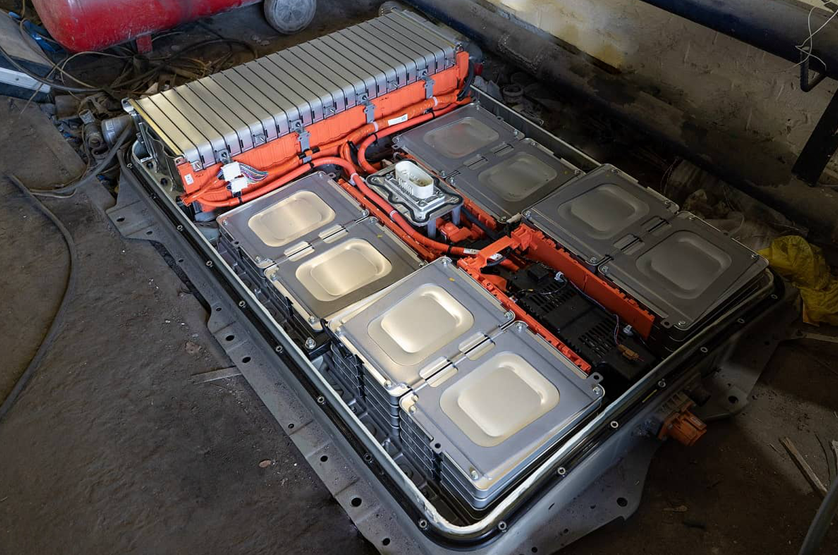Agricultural Tools Revolutionized: Harnessing the Potential of High-Power Lithium Batteries
The agricultural industry has always been at the forefront of technological advancements, constantly seeking innovative solutions to improve efficiency and productivity. With the recent development and widespread adoption of high-power lithium batteries, agricultural tools have undergone a remarkable revolution. These powerful batteries have enabled farmers to enhance their operations, reduce costs, and minimize environmental impact.
One of the significant advantages of high-power lithium batteries is their ability to provide a consistent and reliable power source. Unlike traditional fuel-powered machinery, which often requires time-consuming maintenance and refueling, lithium batteries offer a convenient and uninterrupted power supply. This feature has greatly improved the efficiency of agricultural tools, allowing farmers to focus more on their tasks at hand and minimize downtime.
Furthermore, the use of high-power lithium batteries has significantly reduced costs for farmers. Fuel prices have always been a concern for farmers, with fluctuations impacting their bottom line. By harnessing the potential of lithium batteries, farmers can now rely on a more cost-effective energy source. Not only do lithium batteries require less maintenance, but they also have a longer lifespan compared to traditional batteries, resulting in fewer replacements and reduced overall expenses.
In addition to cost savings, high-power lithium batteries have also played a crucial role in minimizing the environmental impact of farming practices. The agricultural sector has long been associated with pollution and high carbon emissions. However, with the adoption of lithium batteries, farmers can now reduce their carbon footprint significantly. These batteries produce zero emissions, making them a sustainable and environmentally-friendly option for powering agricultural machinery.
The versatility of high-power lithium batteries is another reason for their increasing popularity in the agricultural industry. These batteries can be used to power a wide range of tools, from tractors and harvesters to irrigation systems and electric fences. This flexibility allows farmers to customize their equipment based on their specific needs, ensuring optimal performance and efficiency.
Furthermore, the integration of lithium batteries with smart technology has opened up new possibilities for precision farming. Smart farming relies on the use of sensors, drones, and data analysis to make informed decisions and optimize agricultural practices. By utilizing lithium batteries to power these advanced technologies, farmers can collect and analyze accurate data, leading to more efficient crop management, reduced water consumption, and improved yields.
Despite the numerous benefits of high-power lithium batteries, there are still some challenges that need to be addressed. The cost of lithium batteries remains relatively high compared to traditional fuel-powered alternatives, making it inaccessible for some farmers, particularly those in developing countries. Additionally, the disposal and recycling of lithium batteries require proper infrastructure and processes to prevent environmental damage.

To overcome these challenges, governments, research institutions, and private companies must collaborate to develop affordable and sustainable solutions. Investing in research and development can lead to the discovery of new materials and technologies that can lower the cost of lithium batteries while maintaining their performance and reliability. Furthermore, establishing appropriate recycling systems will ensure the safe disposal and reuse of lithium batteries, minimizing their environmental impact.
In conclusion, the agricultural industry has embraced the potential of high-power lithium batteries, revolutionizing the way farming tools operate. These batteries have enabled farmers to enhance efficiency, reduce costs, and minimize environmental impact. As technology continues to advance and costs decrease, the adoption of lithium batteries is expected to become more widespread, further transforming the agricultural sector and paving the way for a more sustainable future.
-
 Introduction The locomotive starter battery is a vital component in the operation of trains. It provides the initial power required to start the locomotive engine and helps in the efficient operation of the train. In this article, we will discuss the importance of the locomotive starter battery, its components, types, and maintenance. Importance of Locomotive Starter Battery ...En savoir plus
Introduction The locomotive starter battery is a vital component in the operation of trains. It provides the initial power required to start the locomotive engine and helps in the efficient operation of the train. In this article, we will discuss the importance of the locomotive starter battery, its components, types, and maintenance. Importance of Locomotive Starter Battery ...En savoir plus -
 As the world moves towards more sustainable energy solutions, lithium iron phosphate (LiFePO4) batteries have emerged as a popular choice for renewable energy storage. These batteries are known for their high energy density, long cycle life, and stable performance. If you own a 48V LiFePO4 battery, it is essential to choose the right charger to maintain its lifespan and performance....En savoir plus
As the world moves towards more sustainable energy solutions, lithium iron phosphate (LiFePO4) batteries have emerged as a popular choice for renewable energy storage. These batteries are known for their high energy density, long cycle life, and stable performance. If you own a 48V LiFePO4 battery, it is essential to choose the right charger to maintain its lifespan and performance....En savoir plus -
 Introduction: A boat cranking battery plays a crucial role in the efficient functioning of your boat\'s engine. It provides the necessary power to start the engine, ensuring smooth starts and reliable performance during your boating adventures. In this article, we will explore the importance of a high-quality cranking battery, factors to consider when choosing one, and tips for maintaining its...En savoir plus
Introduction: A boat cranking battery plays a crucial role in the efficient functioning of your boat\'s engine. It provides the necessary power to start the engine, ensuring smooth starts and reliable performance during your boating adventures. In this article, we will explore the importance of a high-quality cranking battery, factors to consider when choosing one, and tips for maintaining its...En savoir plus -
 Low-speed electric vehicles (LSEVs) are compact electric vehicles designed for short-distance travel at relatively low speeds. They are typically used in urban environments, industrial areas, and campuses for transportation purposes. LSEVs are known for their small size, low cost, and eco-friendly operation. Lithium batteries are commonly used in low-speed electric vehicles due to their high energy density, lightweight nature, and...En savoir plus
Low-speed electric vehicles (LSEVs) are compact electric vehicles designed for short-distance travel at relatively low speeds. They are typically used in urban environments, industrial areas, and campuses for transportation purposes. LSEVs are known for their small size, low cost, and eco-friendly operation. Lithium batteries are commonly used in low-speed electric vehicles due to their high energy density, lightweight nature, and...En savoir plus -
 When it comes to enjoying the great outdoors, many people turn to camping as a way to escape the hustle and bustle of daily life. However, camping can sometimes be a challenging experience, especially if you are relying on traditional power sources. Fortunately, with the introduction of lithium camper batteries, the camping experience has been revolutionized. Lithium camper batteries...En savoir plus
When it comes to enjoying the great outdoors, many people turn to camping as a way to escape the hustle and bustle of daily life. However, camping can sometimes be a challenging experience, especially if you are relying on traditional power sources. Fortunately, with the introduction of lithium camper batteries, the camping experience has been revolutionized. Lithium camper batteries...En savoir plus -
 À l’ère des demandes croissantes de connectivité et de communication, les stations de base efficaces et fiables jouent un rôle crucial pour garantir des réseaux de communication transparents. Les stations de base traditionnelles, qui s'appuient sur des sources d'énergie conventionnelles du réseau, sont souvent confrontées à des défis tels que des coûts d'exploitation élevés, une mobilité limitée et des préoccupations environnementales. Pour résoudre ces problèmes et améliorer l'efficacité de la communication, la mise en œuvre d'une base alimentée par batterie au lithium...En savoir plus
À l’ère des demandes croissantes de connectivité et de communication, les stations de base efficaces et fiables jouent un rôle crucial pour garantir des réseaux de communication transparents. Les stations de base traditionnelles, qui s'appuient sur des sources d'énergie conventionnelles du réseau, sont souvent confrontées à des défis tels que des coûts d'exploitation élevés, une mobilité limitée et des préoccupations environnementales. Pour résoudre ces problèmes et améliorer l'efficacité de la communication, la mise en œuvre d'une base alimentée par batterie au lithium...En savoir plus -
 Lithium iron phosphate (LiFePO4) batteries have gained popularity in recent years due to their high energy density, long cycle life, and low maintenance requirements. These batteries are widely used in electric vehicles, solar energy storage systems, and other applications that require reliable and efficient energy storage solutions. However, to ensure optimal performance and longevity of LiFePO4 batteries, it is...En savoir plus
Lithium iron phosphate (LiFePO4) batteries have gained popularity in recent years due to their high energy density, long cycle life, and low maintenance requirements. These batteries are widely used in electric vehicles, solar energy storage systems, and other applications that require reliable and efficient energy storage solutions. However, to ensure optimal performance and longevity of LiFePO4 batteries, it is...En savoir plus

